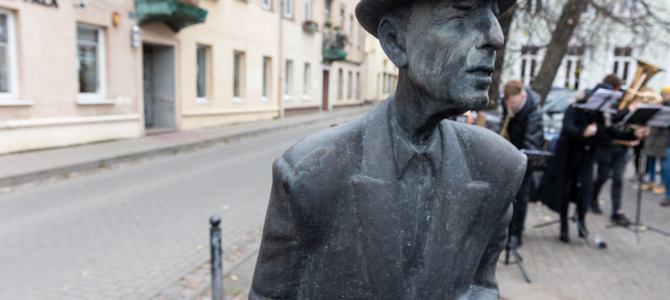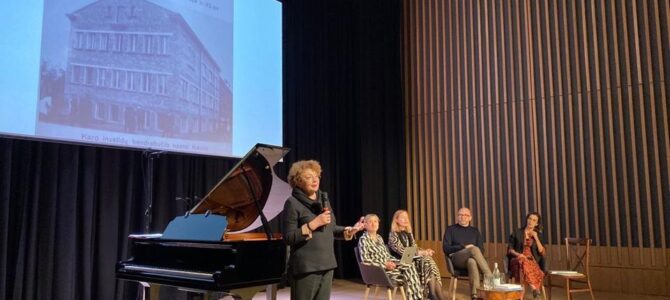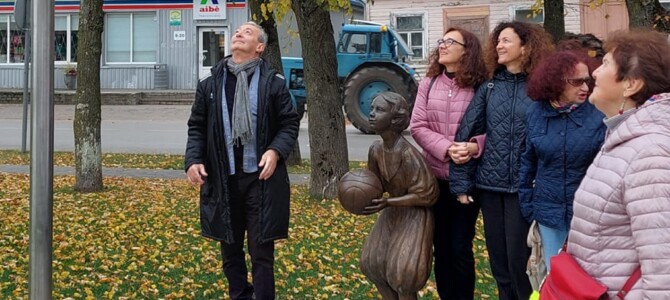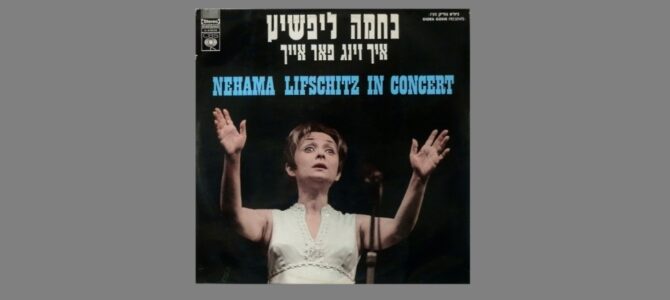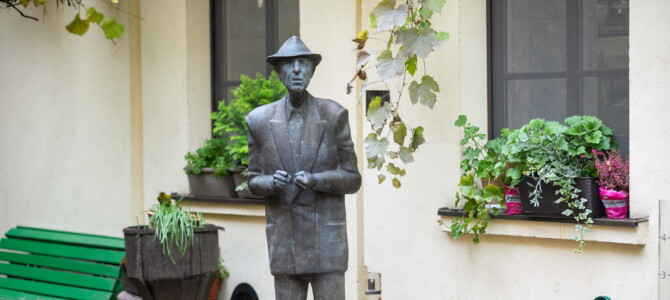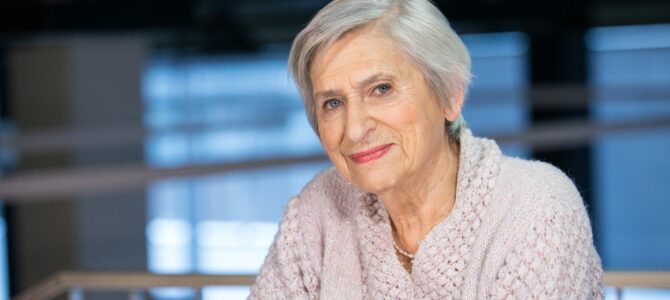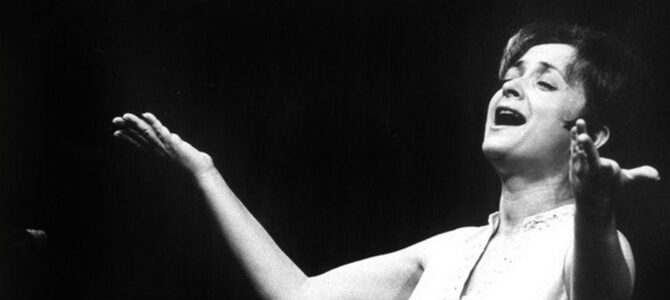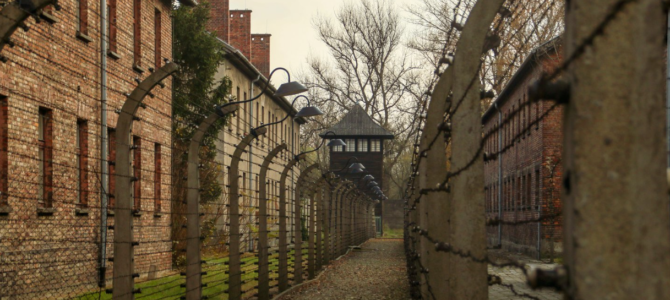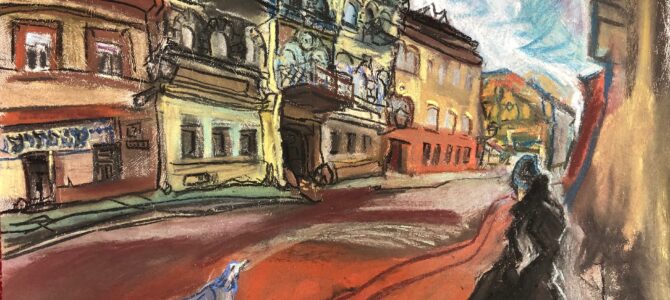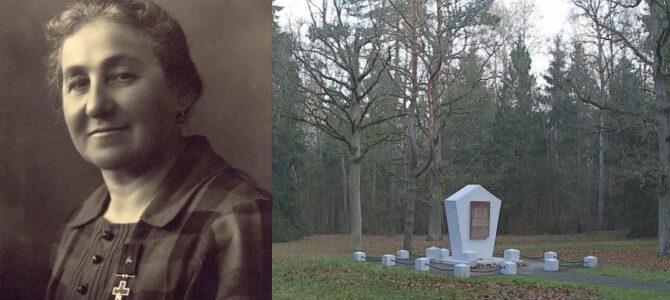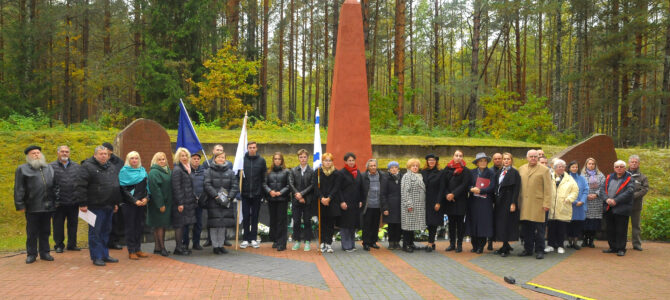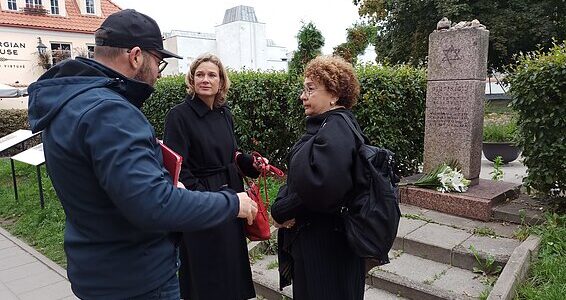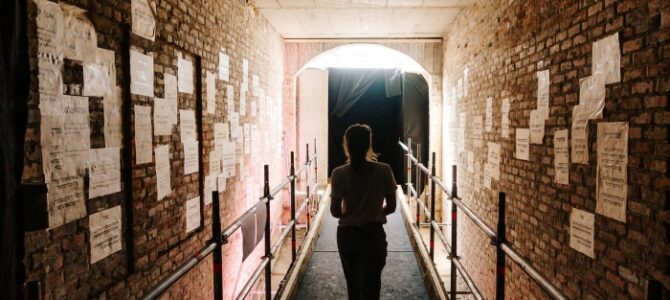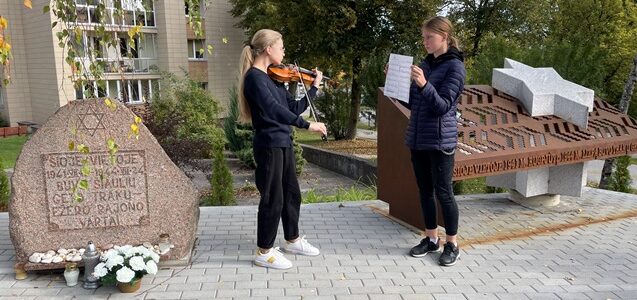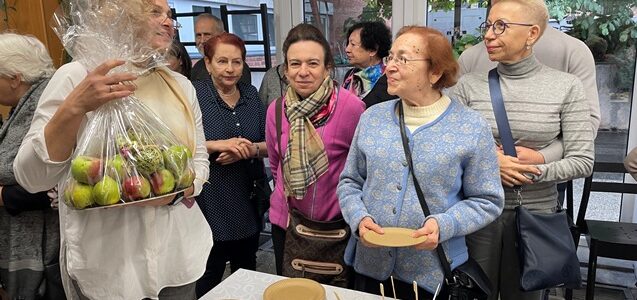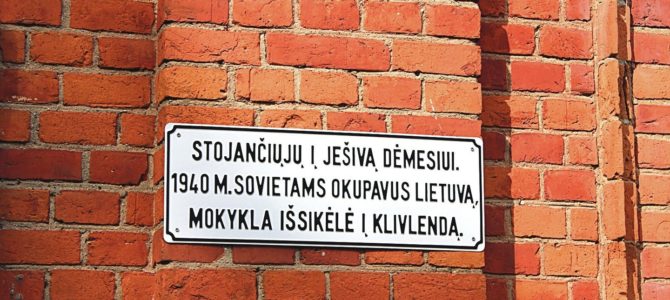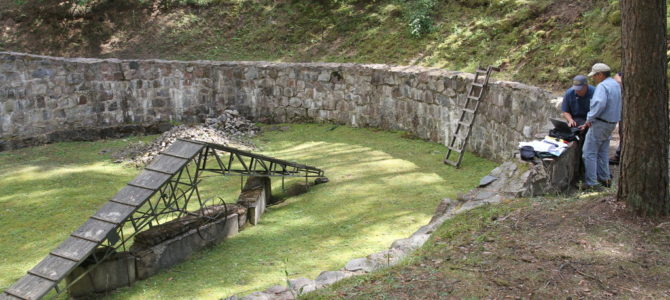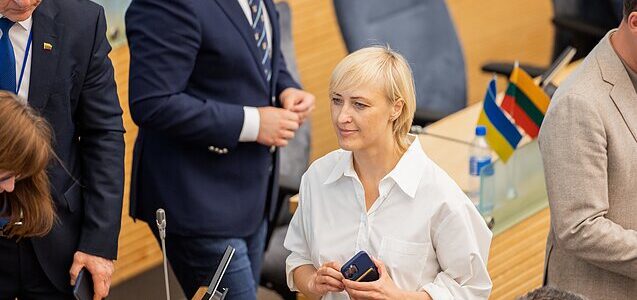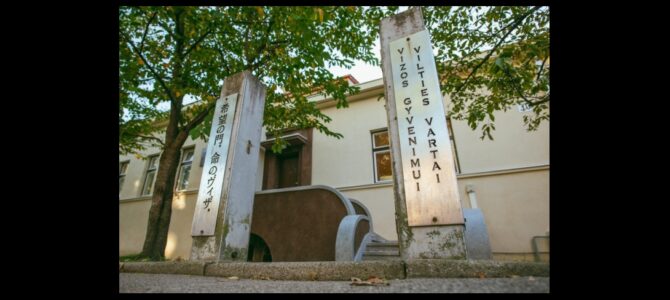Photo: Artist Jenny Kagan’s immersive exhibition “Out of Darkness” in Kaunas, Lithuania, July, 2022 (photographer Gražvydas Jovaiša).
Near the site of one of the genocide’s most heavily photographed atrocities, lighting designer Jenny Kagan brings the city’s wartime past “Out of Darkness”
by Matt Lebovic, Times of Israel, October 1, 2022
The 1941 Lietūkis garage massacre in Kaunas, Lithuania, was among the Holocaust’s most heavily photographed aktions against Jews, but many of the city’s current inhabitants have never heard of the atrocity.
On June 27, 1941, a group of pro-German Lithuanian nationalists tortured and murdered at least 50 Jews at the city’s Lietūkis garage. During the massacre, a German soldier took photos of dozens of Lithuanians, including children, cheering while a man called “the death dealer” beat Jews to death with a crowbar.
Among the Jewish men murdered that day was British artist Jenny Kagan’s grandfather, Jurgis Stromas, who owned the Pasaka (Fairytale) cinema in town. At one point during the public slaughter, the “death dealer” climbed atop a mound of corpses and performed the Lithuanian national anthem with an accordion.


